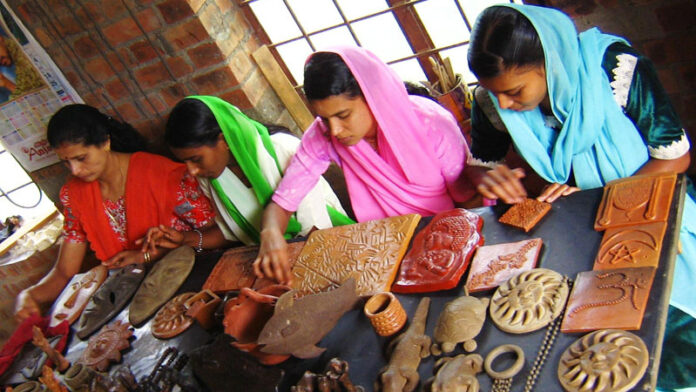LAHORE: In order to ensure economic empowerment of women, the United Kingdom’s Department for International Development (DFID) would provide up to £36 million to the Punjab government under the Women’s Income Growth and Self-Reliance (WINGS) Programme.
A memorandum in this regard was signed between the Punjab government and DFID on Wednesday. Planning & Development Board Chairman Hamed Yaqoob Sheikh, DFID Head of Economic Growth Group Anqa Butt, P&D member Khalid Sultan and Punjab Social Protection Authority CEO Shahenshah Faisal witnessed the signing ceremony.
The WINGS programme aims to support the transition of extremely poor women, from social protection to sustainable livelihoods, prosperity and self-reliance.
Under the programme, several government-led delivery channels would be developed while policy reforms would be introduced to enable the women rely on social safety nets and to ensure their engagement in income-generating activities.
The programme fits within the wider transition of DFID Pakistan’s portfolio for social protection, poverty alleviation, gender equality and Sustainable Development Goals (SDGs).
Talking to this scribe, a P&D official informed that the said project would be launched in the Multi-Dimensional Poverty Index areas, which includes Bahawalnagar, Bhawalpur, Dera Ghazi Khan, Layyah, Lodhran, Mianwali, Muzaffargarh, Rahim Yar Khan and Rajanpur.
Addressing the ceremony, P&D Board Chairman Hamed Yaqoob Sheikh said that DFID would fund up to £36 million, including £28.5 million as financial assistance and £7.5 million as technical assistance.
“The programme will be operated through a challenge fund managed by the Punjab Social Protection Authority (PSPA).”
Speaking on the occasion, DFID Economic Growth Group Head Anqa Butt said, “WINGS [programme] complements the fourth pillar of the Ehsaas Programme, i.e. jobs and livelihood for low-income households.
“As employment generation is one of the major objectives of the broader economic reform agenda of Punjab Ehsaas Programme, WINGS also targets the provision of opportunities to the vulnerable groups for income generation.”




